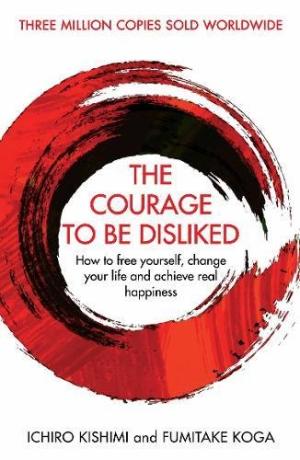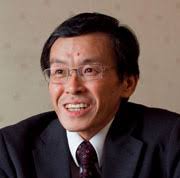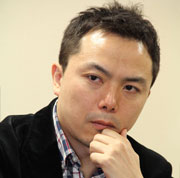10 Ways to Take Responsibility for Your Life
 Thursday, July 13, 2023 at 9:01AM
Thursday, July 13, 2023 at 9:01AM Many people say they would like to change their lives or make positive changes but seem to encounter obstacles, complain, feel restless or postpone taking decisive action. Now is the moment to be more pro-active. Consider 10 ways to take greater responsibility for your life:
1. Prioritize Yourself
To take more control of life, deep down, we must feel worthy, deserving of good things, better decisions. Holding self-limiting beliefs, perpetuating negative self-talk ("I can't or won't...") causes us to avoid responsibility. Thus, we may feel undeserving of better. Thing is, we can only love and support others if we love and support self first, practice self-love and self-care.
2. Stop Blaming the External
Although common practice, blaming others for our conditions is a form of self-sabotage, an unconscious attempt to escape from growing up (maturing as a soul). Society teaches us to and judge others rather than address our own actions. When we are hyper-focused on other people’s behaviours, we often overlook signs and signals we give ourselves and available big life lessons.
3. Develop Self-Awareness
To take responsibility for our thoughts and actions, we must grow self-aware. Self-reflection allows us to deepen awareness. To grow mindful of feelings, thoughts as they arise, helps us understand our actions, patterns and reasons behind the things we do.
4. Be Accountable
Being responsible entails being accountable to yourself. Some people love external praise and their own positive feelings and yet find it hard to realize they are the source of all their behaviour, perception, feelings, or results. Pride blocks growth. To be accountable is to accept and understand our role in each situation. How we are treated depends on how we treat ourselves. The key is self-honesty, not avoiding transparency. Of course, self-pity and guilt are not helpful.
5. Get to Know Yourself
Turns out, we are conditioned to adopt other people’s beliefs about us. Beyond external conditioning, we all have our own sense of success and happiness. Though family and peers may have good intentions, we cannot act to appease others and live in integrity. If parents may want their child to look a certain way, choose a specific training, career, or partner. We would not blindly listen if we took steps to get to know self, our version of happiness and success. This requires self-honesty. We may even need to separate from people who constantly impose their views. This can create internal conflict, complicating our decision-making.
6. Love Yourself
Taking responsibility can be difficult until we love ourselves enough to get that every moment, we control our thoughts, feelings and life direction. Realizing this changes things. When we judge ourselves harshly, we throw off our inner balance. We feel ungrounded, unsupported, unsustainable, and very discouraged. Self-love guides us to the wisdom within the self. A mere shift in perspective is a potent action in the name of love.
7. Eliminate Excuses
To make excuses is not responsible, like denying you are the captain of your ship. An irresponsible person may say they want to eat healthier but say they don’t have time. However, to be responsible, accountable, and honest, is to prioritize creating time. We can find many reasons not to make life changes. Yet, this is giving our power away. We all have the same 24 hours per day. We are all responsible for how we choose to use it.
8. Remove Toxic People
Toxic people enable us to continue unhealthy habits and toxic behaviour. People who genuinely care for us and love us will hold you accountable. They want to see us achieve our dreams. Other individuals want to keep us co-dependent. To take responsibility for life means taking responsibility for our entourage, and relationships. People who frequently complain, self-loathe, self-deprecate, and speak down on your progress do not benefit our growth. Creating distance brings us inner strength. Nourish healthy and supportive interaction. Also, seek to establish emotional independence to make better decisions from an objective stance and attract authentic people into our life experience.
9. Eradicate Negative Self-Talk
Negative self-talk can arise from childhood trauma inflicted by abuse or bullying. These negative, self-limiting beliefs we have of ourselves usually originate from the projections and judgments other people throw at us. When we are younger, we tend to internalize these words, and they become ingrained. It takes time to un-condition such negative ideas about Self. However, it’s possible by doing activities aimed at self-love and self-care. We come into this world with a very clean slate. As we grow, we begin to take on our personality. Much of this has to do with the environments. However, we can take responsibility for our lives and reclaim our full potential.
10. Take Quantum Leaps outside Comfort Zones
The only way to truly take full and complete responsibility for our lives is to rediscover what it is to experience examples of fearlessness. This may begin in a playground swing, allowing ourselves to fear the wind in our hair as we pump the swing higher. As we gain courage and confidence, we increasingly make choices to do what we have not done before, confront our fears and see where assertiveness and adventurousness take us. This may guide us to new job, new relationships, new entourage, new pastimes and ways to spend out time. Remind yourself the five people you spend the most time with are the five people you are becoming.












